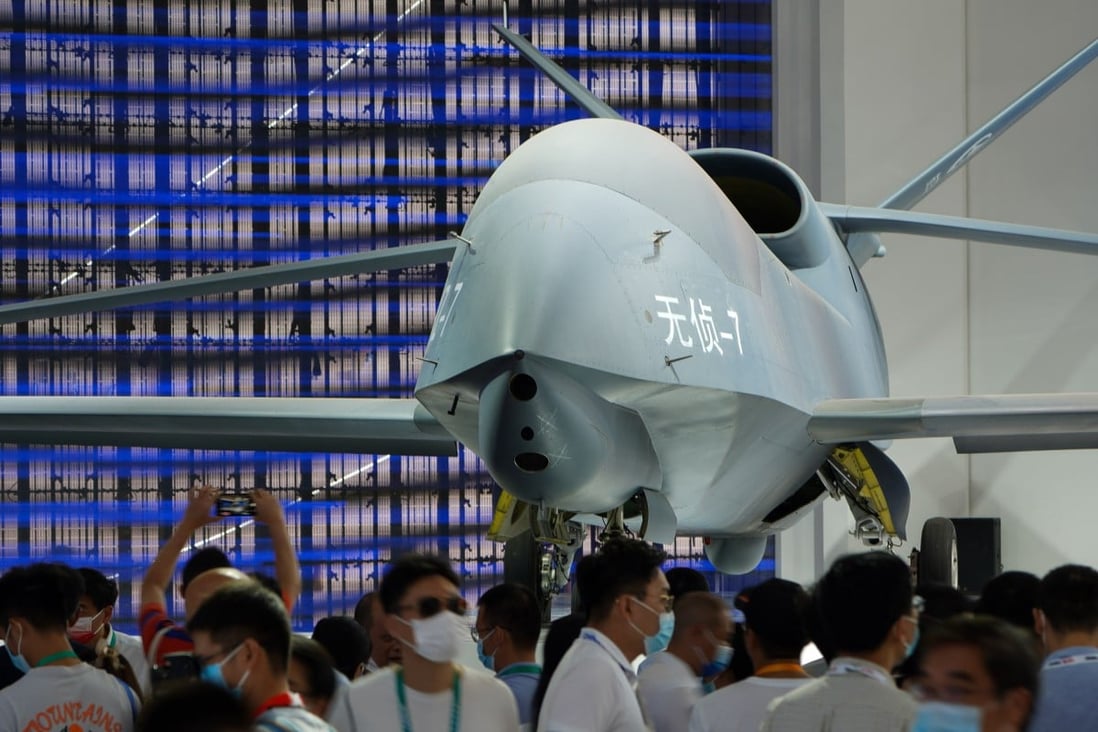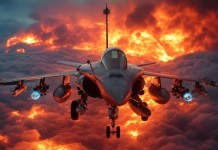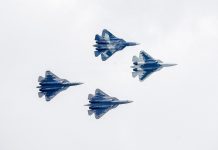Beijing’s economic clout has always dominated news coverage of China’s expanding relations with African countries. However, with Russia distracted by the conflict in Ukraine, China seems to have significantly increased its defense and security cooperation in Africa.
Recent statistics have indicated that Beijing’s expanding influence may threaten the Russian market share. However, China’s defense and security cooperation is not only confined to exporting weapons to African countries.
It has even deployed private military and security contractors (PMSCs) to safeguard a range of projects including mining complexes, ports, and railways – under the Belt and Road Initiative.
The RAND Corporation, an American think tank, recently published a new map that tracks Chinese and Russian military activity in Africa. The report noted that Moscow and Beijing supplied various weapons, including aircraft and unmanned aerial vehicles, artillery, armored vehicles, missiles, and ships.
The report shows that Chinese PMSCs have been stationed in 15 African countries, while Beijing has transferred munitions or weapons to 17 countries.

On the other hand, Russian private military and security companies have obtained contracts in 31 African nations, placing them slightly ahead of China. According to statistics from RAND released in late December, Moscow has also transferred weapon equipment to 14 African countries.
With long-standing relations that date to the anti-colonial liberation movements of the 1950s and 1960s, Russia supplies just under half of the military hardware in Africa. This defense and security cooperation is primarily based on troop training, arms sales, and the dispatch of mercenaries.
The RAND study found that seven African nations have received both PMSCs and armaments from China, compared to ten from Russia. Meanwhile, Angola, the Central African Republic, Ethiopia, Mali, and Sudan are among the five countries that have acquired weaponry and PMSCs from China and Russia.
The analysis discovered that 15 countries that had acquired Chinese PMSCs had also received Russian private security firms.
Ben Lewis, a US-based defense analyst, told the EurAsian Times that Beijing had made a concerted effort to increase its arms and security sales in the global south. “This goes hand in hand with the Belt-Road Initiative.”
Lewis emphasized that as most Chinese PMCs are directly or indirectly state-owned, and given Chinese policy on civil-military fusion, the utilization of these companies is a key component of Chinese influence operations in Africa.
China Is Carving Out Its Segment In Africa
China, like other nations, is driven to sell weapons for financial benefits, and these deals frequently involve complex negotiations. This may boost China’s overall influence on that nation.
Additionally, manufacturing weapons systems for export can cut the marginal cost of those systems, enabling nations like China to sell their products to consumers at cheaper unit costs.
John Parachini, a senior international and defense researcher at RAND, said that most of China’s private security firms serve Chinese industrial ventures abroad. Compared to Russian military corporations like the Wagner Group, which act as mercenaries, their responsibilities in foreign countries have been very different, Parachini noted.
Over the past five years, Russia has conducted covert military operations in at least six African nations employing a shadowy mercenary group that analysts believe is close to President Vladimir Putin.
But the authors of the RAND analysis pointed out that China’s contractors have, so far, deployed mainly unarmed and taken part in defensive security tasks rather than military activities. According to the research, Chinese PMSCs are primarily used to safeguard China’s interests.
According to data from the Stockholm International Peace Research Institute, Africa’s top five arm suppliers are China, France, Germany, Russia, and the United States. Due to their long-standing historical ties, the US, France, and Germany have a reputation for manufacturing high-quality defense equipment.

China, like Russia, markets its systems as less expensive alternatives to various Western nations’ systems. Thus, Parachini stated that China is creating its segments in the African market by using particular drones and weaponry.
Lewis expressed a similar viewpoint, noting, “China has developed a robust indigenous arms industry that produces all weapons systems. These systems are on average cheaper than American or European systems, and China likewise uses the sale of these systems to develop its relationships with buyer countries.”
He explained, “Chinese arms are not limited by End-Use Monitoring, or EUM, like weapons from the United States. EUM is a policy that requires weapons sold by the United States to be used in accordance with International Law, not to be resold without permission, and in many cases more specific rules as well.”
“China does not have such a policy, which increases its market size to countries where the United States and its allies are unwilling to sell weapons. Arms sales, like PMCs, are another method China uses to develop their influence in Africa and globally,” Lewis added.
Experts also believe that China may benefit from the interruptions caused by the conflict in Ukraine and is expected to seize market share from Russia’s military shipments to Africa.
After Russia invaded Ukraine, few nations looked to purchase weapons from Moscow due to potential sanctions, their lack of effectiveness, or worries about the availability of replacement parts for Russian systems.
But, China could emerge as an alternative option since it offers systems at a lower price and has no limits on selling them to nations with questionable human rights histories.
Lewis stated, “Sanctions against be Russian government have forced many countries to re-evaluate their relationships with Moscow. This especially included security ties. Due to embargoes on high technology needed to build most major weapons, Russia may not be considered a reliable provider of arms. The risk of punishment for violating international sanctions may be too great for some countries to risk.”
He believes that China has a golden opportunity to boost its arms sales to fill this void, and it is continuing to expand the presence of its PMCs and sell vast quantities of arms abroad.
Nonetheless, China exports weapons to Africa to generate profit and to improve ties with African militaries and governments. Also, private security contractors have no role in these purchases.
- Contact the author at ashishmichel(at)gmail.com
- Follow EurAsian Times on Google News




